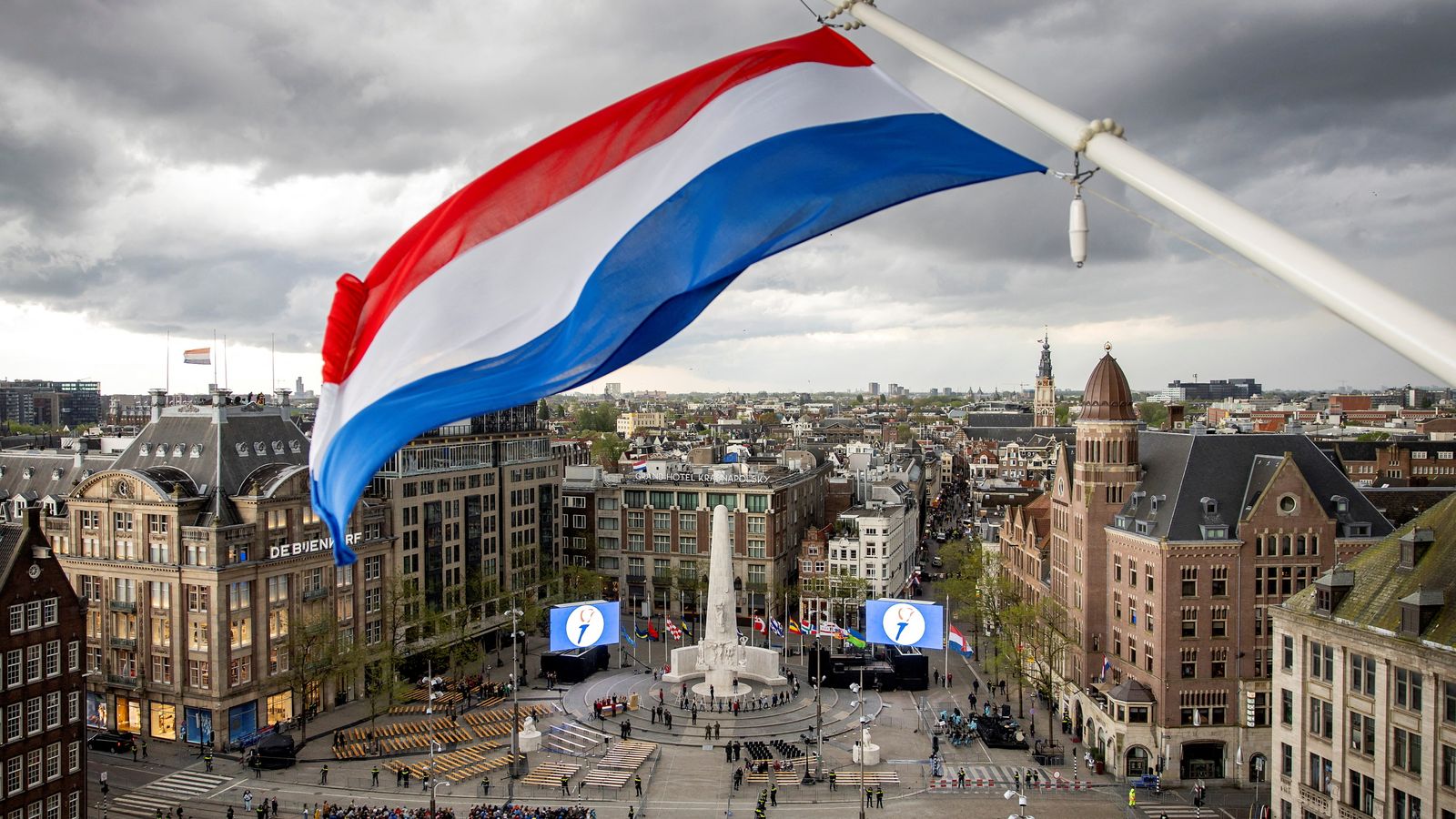Round 425,000 names of individuals suspected of collaborating with the Nazis within the Netherlands in the course of the Second World Battle have been launched for the primary time.
A Dutch challenge, known as Battle In Courtroom, launched the checklist after the expiry of a legislation which had restricted public entry to the archive.
It consists of 32 million pages and consists of the names of principally Dutch folks investigated for collaborating with Nazi occupiers.
The Nazis invaded in 1940 and remained in the Netherlands till the allied liberation in 1945.
In these 5 years, greater than 100,000 of the Dutch Jewish inhabitants have been killed in the Holocaust.
Analysis group the Huygens Institute made the names obtainable on-line in a transfer which consultants consider will present a “vital useful resource” for historians.
Solely a fifth of the folks listed ever appeared in court docket and most circumstances involved lesser offences comparable to being a member of the Nationalist Socialist motion.
The overwhelming majority of persons are lifeless, that means the EU’s normal information safety regulation doesn’t apply.
Scanned recordsdata giving extra detailed data on the victims and witnesses of these on the checklist have been initially going to be made obtainable.
Nevertheless, this was postponed after a warning from the Dutch information safety authority.
Learn extra from Sky Information:
Canada’s PM Justin Trudeau ‘likely’ to resign
Tuna sells for £1m at Tokyo fish market auction
A date has not been set for publication, however folks with a analysis curiosity – together with descendants, journalists and historians – could make a request to seek the advice of them on the Dutch Nationwide Archives.
Dan Stone, a contemporary historical past professor at Royal Holloway, College Of London, informed NBC Information the archive offered an “extraordinary useful resource, and one which may be very well timed when it comes to the Dutch debates in regards to the battle and ranges of collaboration”.
“The truth that comparatively few have been imprisoned most likely tells us as a lot about post-war Dutch society because it does in regards to the wartime information,” he added.



